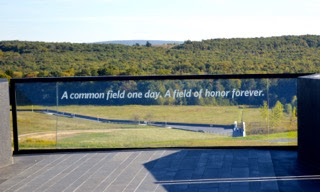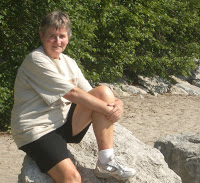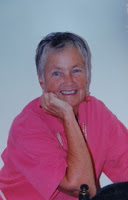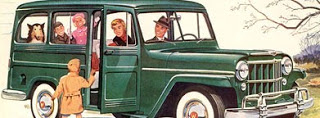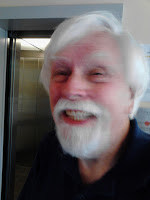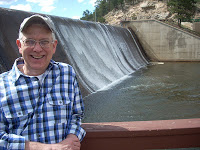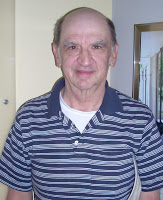The Merriam-Webster Dictionary defines the adjective as
“having a strong emotional effect: causing feelings of sadness or
sympathy.” So what is it within us, we humans, that draws us to stories or
places or events which we find moving? I know that is true for myself. I also
know the memories of such places or events, whether I have purposely involved
myself or simply stumbled into them, way outlive many other memories.
“having a strong emotional effect: causing feelings of sadness or
sympathy.” So what is it within us, we humans, that draws us to stories or
places or events which we find moving? I know that is true for myself. I also
know the memories of such places or events, whether I have purposely involved
myself or simply stumbled into them, way outlive many other memories.
In high school I went to France with three other girls. It
was the first time any of us had been out of Britain and I’m sure we saw it as
some wild adventure. We stayed in the picturesque town of Annecy, and from the
warm glow which accompanies thoughts of it, I’m sure we had a good time there,
though any details escape me. This is supported by a few faded old photos of
happy, giggling, girls. But I remember only one thing. Our train, heading
south-east from Calais through rich farmland, suddenly entered fields growing
nothing but crosses; small white crosses which in my memory numbered in the
thousands, stretching to the horizon and continuing for endless miles. They
reside so solidly in my mind that I can feel the swaying of the train and hear
the clickety-clack of the wheels on the rails as I write. Even as a silly
giggly schoolgirl I recognized the crosses as commemorating the dead of the
First World War, while France still reeled from the Second. They moved me to
tears. They are as clear in my mind as if it were yesterday.
was the first time any of us had been out of Britain and I’m sure we saw it as
some wild adventure. We stayed in the picturesque town of Annecy, and from the
warm glow which accompanies thoughts of it, I’m sure we had a good time there,
though any details escape me. This is supported by a few faded old photos of
happy, giggling, girls. But I remember only one thing. Our train, heading
south-east from Calais through rich farmland, suddenly entered fields growing
nothing but crosses; small white crosses which in my memory numbered in the
thousands, stretching to the horizon and continuing for endless miles. They
reside so solidly in my mind that I can feel the swaying of the train and hear
the clickety-clack of the wheels on the rails as I write. Even as a silly
giggly schoolgirl I recognized the crosses as commemorating the dead of the
First World War, while France still reeled from the Second. They moved me to
tears. They are as clear in my mind as if it were yesterday.
Years ago, I have little idea when it would have been, I was
for some reason in Washington D.C. with time on my hands and went to see the
Vietnam Memorial Wall. With almost 60,000 names, the gold lettering seemed to
go on forever, like those white crosses. The weather was windy and wet and
there were few people there. I became mesmerized by one old woman who stood,
the rain mixing with her tears, silently caressing each letter of one name. Her
wrinkled old fingers gently traced the name from beginning to end and back from
end to beginning, over and over and over. I couldn’t stop watching. I wanted
badly to put my arms around her but could not intrude on her obvious grief.
Whose name was it? She seemed pretty old for it to be her son. Grandson?
Granddaughter? Why was she here all alone? My heart felt that it would break for
her.
for some reason in Washington D.C. with time on my hands and went to see the
Vietnam Memorial Wall. With almost 60,000 names, the gold lettering seemed to
go on forever, like those white crosses. The weather was windy and wet and
there were few people there. I became mesmerized by one old woman who stood,
the rain mixing with her tears, silently caressing each letter of one name. Her
wrinkled old fingers gently traced the name from beginning to end and back from
end to beginning, over and over and over. I couldn’t stop watching. I wanted
badly to put my arms around her but could not intrude on her obvious grief.
Whose name was it? She seemed pretty old for it to be her son. Grandson?
Granddaughter? Why was she here all alone? My heart felt that it would break for
her.
I remember nothing else of that visit to D.C. I don’t even
know why I was there though I suspect a business trip. But I have never
forgotten those worn old fingers slowly moving over the cold wet stone.
know why I was there though I suspect a business trip. But I have never
forgotten those worn old fingers slowly moving over the cold wet stone.
Shortly after I retired, I found myself in a volunteer job in
Hungary for a few weeks. I resolved not to leave without visiting Auschwitz in
neighboring Poland, and so one weekend took the overnight train from Budapest
to Krakau, to spend a day which was well beyond moving; harrowing,
heartbreaking, horrifying. After some time at Auschwitz, having reached my
saturation point of the evil of that dreadful place, I returned to Krakau in a
cab shared with four others. The five of us stood silently on the cobbled
street, watching the cab rattle away. It was almost as if we huddled together
searching for comfort from what we so recently had seen and felt. There seemed
nothing to say. Eventually we began to introduce ourselves – and a motley crew
we were. There was a Jewish woman, about my age, from Wisconsin, two young
Japanese men who, as far as I ever discovered, spoke not one word of any other
language, and an even younger man who literally spoke not one word at all, so I
never knew what country he was from or what language he would have spoken, had
he spoken. Still we seemed to have some compelling need to stick together. One
of the Japanese men gestured across the street. There was a cinema, showing,
rather shockingly I somehow felt, Schindler’s List. He turned
questioningly to the rest of us and we all nodded yes in silent agreement. What
strange impulse led us to do that? It was as if our current state of numb
misery was not enough; we needed more. After the movie we performed a strange,
hesitant, kind of loosely formed group hug, and I returned to Budapest on the
overnight train after one of the strangest days of my life. But I can still
recall every detail of that day, while most of my time in Hungary recedes into
misty muddled memory.
Hungary for a few weeks. I resolved not to leave without visiting Auschwitz in
neighboring Poland, and so one weekend took the overnight train from Budapest
to Krakau, to spend a day which was well beyond moving; harrowing,
heartbreaking, horrifying. After some time at Auschwitz, having reached my
saturation point of the evil of that dreadful place, I returned to Krakau in a
cab shared with four others. The five of us stood silently on the cobbled
street, watching the cab rattle away. It was almost as if we huddled together
searching for comfort from what we so recently had seen and felt. There seemed
nothing to say. Eventually we began to introduce ourselves – and a motley crew
we were. There was a Jewish woman, about my age, from Wisconsin, two young
Japanese men who, as far as I ever discovered, spoke not one word of any other
language, and an even younger man who literally spoke not one word at all, so I
never knew what country he was from or what language he would have spoken, had
he spoken. Still we seemed to have some compelling need to stick together. One
of the Japanese men gestured across the street. There was a cinema, showing,
rather shockingly I somehow felt, Schindler’s List. He turned
questioningly to the rest of us and we all nodded yes in silent agreement. What
strange impulse led us to do that? It was as if our current state of numb
misery was not enough; we needed more. After the movie we performed a strange,
hesitant, kind of loosely formed group hug, and I returned to Budapest on the
overnight train after one of the strangest days of my life. But I can still
recall every detail of that day, while most of my time in Hungary recedes into
misty muddled memory.
Betsy and I spent the whole month of September 2015 on a 5,000-mile
road trip to and from the east coast. We stayed in so many different places and
did so many completely different things that it seems, looking back, like
several mini-vacations all rolled into one. Some things were scheduled and
planned, some were simply spontaneous. Driving back home through Pennsylvania,
Betsy spotted a tiny red square on the map. Beside it, in miniscule red
letters, were the words, Flight 93 Crash Site Memorial. Although we were in Pennsylvania,
we hadn’t given it a thought. I’m not sure we even knew there was such a thing.
Without hesitation we agreed the small detour was worth it, and took off across
back roads through rolling farmland.
road trip to and from the east coast. We stayed in so many different places and
did so many completely different things that it seems, looking back, like
several mini-vacations all rolled into one. Some things were scheduled and
planned, some were simply spontaneous. Driving back home through Pennsylvania,
Betsy spotted a tiny red square on the map. Beside it, in miniscule red
letters, were the words, Flight 93 Crash Site Memorial. Although we were in Pennsylvania,
we hadn’t given it a thought. I’m not sure we even knew there was such a thing.
Without hesitation we agreed the small detour was worth it, and took off across
back roads through rolling farmland.
The Memorial is beautifully, very tastefully, done.
There’s a long black granite walkway
following the flight path, which comes to an end overlooking another pathway
(but you cannot walk on this one) mown through the long grass and bushes of
that infamous field. This ends at a boulder placed there to mark the impact
spot. All very simple but oh so effective.
It moves you to tears and also to
shades of the terror those passengers must have felt. There is something magic
about it that almost moves you right into that plane with them. At least that’s
what it did for me.
And after all that is why we visit places like that isn’t it?
To feel. If we don’t feel moved, then why go?
To feel. If we don’t feel moved, then why go?
But, back to the original question I asked myself, why?
Why do I need to be moved to sorrow and sadness by monuments to death and
destruction? Since I decided to write on the topic, I’ve been thinking a lot
about it and I decided that for me it accomplishes several things.
Why do I need to be moved to sorrow and sadness by monuments to death and
destruction? Since I decided to write on the topic, I’ve been thinking a lot
about it and I decided that for me it accomplishes several things.
Gratitude. I simply feel enormous, completely selfish,
gratitude. It was not me. I was not there. Nor were my loved ones: not on that,
or any other, doomed flight, not in the Twin Towers, nor the jungles of Vietnam
dodging snipers’ bullets, nor any school or shopping mall mass shootings, nor
in the Asian tsunami. It revives and strengthens that everyday gratitude I
should feel for the blessed life I have lived, and continue to live.
gratitude. It was not me. I was not there. Nor were my loved ones: not on that,
or any other, doomed flight, not in the Twin Towers, nor the jungles of Vietnam
dodging snipers’ bullets, nor any school or shopping mall mass shootings, nor
in the Asian tsunami. It revives and strengthens that everyday gratitude I
should feel for the blessed life I have lived, and continue to live.
Balance. We need the yin and the yang, that balance of
negative and positive, in our lives; the ups and downs. Without bad, we are
less able to appreciate good. I have been so fortunate, that I think I have to
indulge in collective sorrows to keep my balance; to really feel just
how good my life is.
negative and positive, in our lives; the ups and downs. Without bad, we are
less able to appreciate good. I have been so fortunate, that I think I have to
indulge in collective sorrows to keep my balance; to really feel just
how good my life is.
Connection. In feeling the pain of others, I am connected to
them. Your pain is my pain. We are members of the same tribe. At bottom we are
all tribal beings, and in sharing, no matter how remotely, minimally, the pain
and terror of Auschwitz, I keep myself connected; in the tribe.
them. Your pain is my pain. We are members of the same tribe. At bottom we are
all tribal beings, and in sharing, no matter how remotely, minimally, the pain
and terror of Auschwitz, I keep myself connected; in the tribe.
So it’s not that I get some sick twisted voyeuristic pleasure
from being moved to tears by others’ pain.
It’s simply that I need it.
from being moved to tears by others’ pain.
It’s simply that I need it.
Nicolas Sparks in, At
First Site, says, “The emotion that can break your
heart is sometimes the very one that heals it…”
First Site, says, “The emotion that can break your
heart is sometimes the very one that heals it…”
I think that describes perfectly
my need for being moved to tears. It keeps my heart healthy and strong when
otherwise it might be weakened by a life too lucky.
my need for being moved to tears. It keeps my heart healthy and strong when
otherwise it might be weakened by a life too lucky.
© 2 Nov
2015
2015
About the Author
I
was born and raised in England. After graduation from college there, I moved to
the U.S. and, having discovered Colorado, never left. I have lived in the
Denver-Boulder area since 1965, working for 30-years at IBM. I married, raised
four stepchildren, then got divorced after finally, in my forties, accepting
myself as a lesbian. I have been with
my wonderful partner Betsy for thirty-years. We have been married since 2013.
was born and raised in England. After graduation from college there, I moved to
the U.S. and, having discovered Colorado, never left. I have lived in the
Denver-Boulder area since 1965, working for 30-years at IBM. I married, raised
four stepchildren, then got divorced after finally, in my forties, accepting
myself as a lesbian. I have been with
my wonderful partner Betsy for thirty-years. We have been married since 2013.

